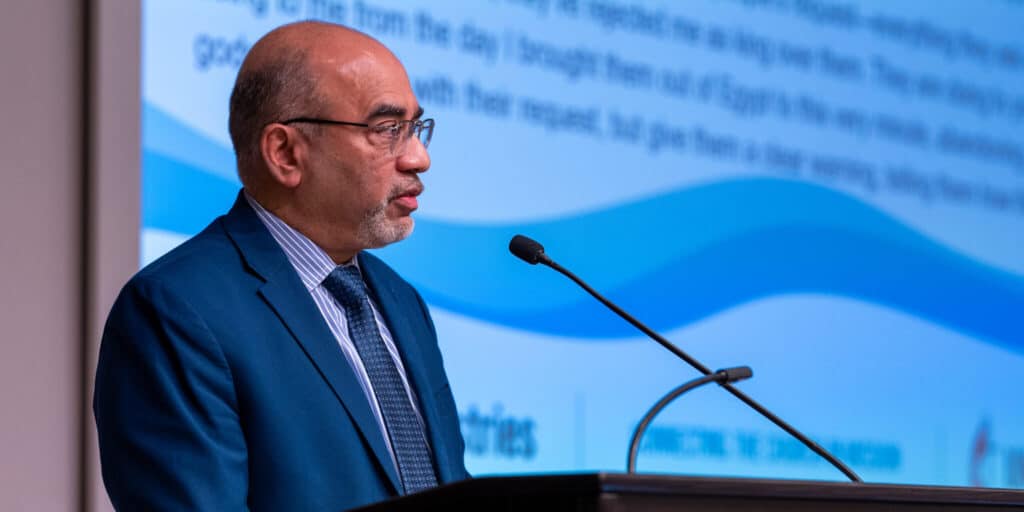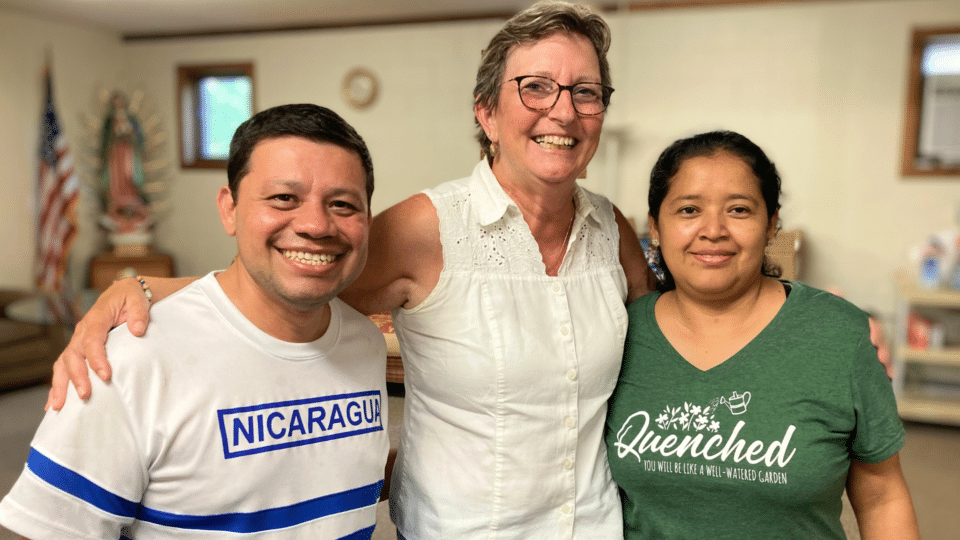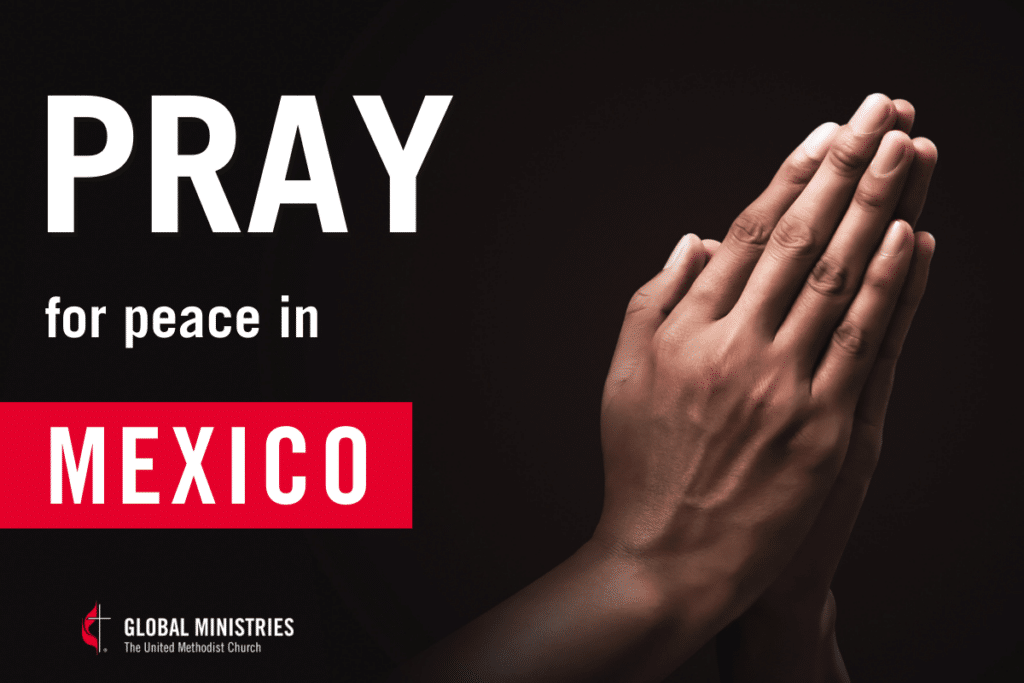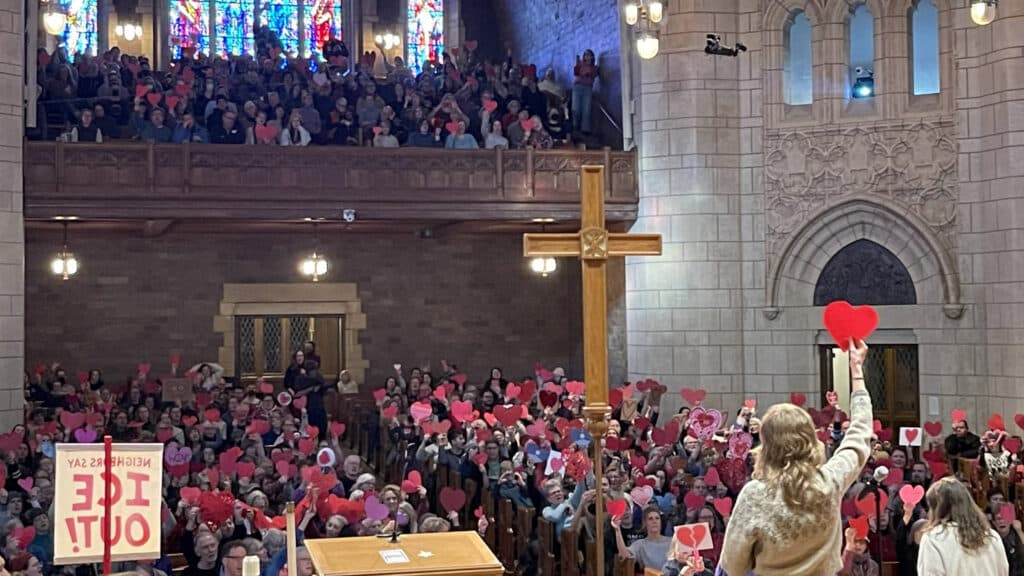ATLANTA — The general secretary of Global Ministries of The United Methodist Church, Roland Fernandes, sees the denomination as currently transitioning from centralized governance to a regionalized and collaborative way of doing business.
In a report to the agency’s board of directors on March 7, Fernandes identified this shift as both sign and outcome of a series of disruptions that are shaking and, at times, shattering the mainline Protestant church in recent years. He spoke to the state of the church two months before a policy-making United Methodist General Conference, set for April 23-May 3 in Charlotte, NC, delayed for eight years first by the COVID-19 pandemic and then by organizational factors.
Fernandes cited both external and internal forces that are challenging an inherited centralized governance pattern rooted in American ways of thinking at a time when membership outside the United States is outpacing membership within it. Fernandes brought this critique to his own doorstep:
Our general agencies have often presumed to be the center of whatever activity we were tasked to support, whether that was mission, education or something else. We have presumed that we knew best in telling churches and annual [regional] conferences how they should carry out the work of the church. We had portrayed ourselves as a global church, but in reality, we function as a U.S.-centric church with some global outreach.
Fernandes’ audience for the report included both Global Ministries and the United Methodist Committee on Relief (UMCOR) directors and staff as well as directors and key staff of the General Board of Higher Education and Ministry (GBHEM). Toward a greater degree of collaboration, the two agencies are working to better align their programs and operations. Fernandes has already been elected general secretary of GBHEM, in addition to Global Ministries and UMCOR, when the term of the current GBHEM general secretary, the Rev. Greg Bergquist, concludes this July. The March meeting was the first simultaneous session of the two boards. The two agencies will each retain independent status under a shared leader.
Mission includes response to suffering
In opening his report, Fernandes recognized places around the world that are experiencing times of war and destruction and where UMCOR works to bring relief and healing, including Ukraine, Palestine, the Eastern Democratic Republic of Congo, Haiti, and others. “We lift them up in our prayers and recommit ourselves to helping bring about a time for peace which is part of the goal of the relatively new Peace and Justice Ministries program at Global Ministries.
“Our hearts are broken by the suffering that has occurred in Israel and Palestine since October,” he said. “We encourage all those in positions of authority to establish an immediate ceasefire so that those who are starving can be fed. As a Christian humanitarian organization, we ask that humanitarian organizations have full, immediate and safe access to Gaza.”
Confronting challenges
In addition to the pandemic and denominational turmoil, Fernandes said the last eight years of United Methodist life have been marked by resurgent racism, the ravages of climate change, and a dramatically increased need to collaborate and act in partnership. He declared, for a variety of reasons, that our old models of governance are not working. They are not working for an increasingly worldwide church. They are not working in societies where denominational loyalties and support for institutions of all types are in decline. They are not working in a post-pandemic, post-disaffiliation context [where a large number of congregations have left the denomination]. He continued:
But rather than insisting on more centralization, we are trying something else, something different: more mutuality and more collaboration. We seem to be always grappling with questions about how to get people to work together effectively toward a common end. An alternative to centralization is a grassroots approach focused on greater communication and collaboration among people. Communication allows people to adjust themselves to one another, a little bit at a time, and a spirit of collaboration ensures that they remain committed to this process. But not just that. The spirit of collaboration allows for joint ownership. As many of you know, although this approach requires more effort to communicate well, it is a stronger, more resilient approach, especially in times of crises.
So, United Methodists are trying this new approach to governance. We are shifting from agencies dictating to churches and annual conferences to agencies listening, inviting and collaborating with churches and annual conferences. We are showing more of that attitude of communication, collaboration and alignment toward one another as well.
The church is also shifting from U.S.-centrism to regionalization. Rather than the U.S. dictating to the rest of the world how to be United Methodist, we are entering into processes of ongoing intercultural communication and mutual adjustment in our practice of what it means to be United Methodist. We talk about collaboration, alignment and wanting to hear all voices. Do we always want all voices at the table? At Global Ministries, we have used the words ‘mutuality in mission’ for many years, but I wonder how widespread of a reality that truly was. We need a different mindset starting at the level of the individual to change to a truly post-colonial, mutual way of working, especially when we have the privileged access to resources which most often aligns with power. As you know, the many conversations we have had in recent months with partners around the world are all geared to this very purpose of increasing mutuality in mission…
Although we cannot fully foresee the consequences of our present decisions, and although we expect there will be both some positive and some negative results, we nevertheless step in the direction of intentional collaboration, trusting it is the right one.
Another major part of Fernandes’ report consisted of accounts of recent events and consultations that illustrate greater internal United Methodist collaboration, especially ways in which this new way of working is influencing strategic planning for global mission and ministry.
He said that three consultations held last year each lifted main themes to be incorporated into Global Ministries’ work. These include a desire for networking and equipping as strategies for mission partnership; a desire for decolonialized approaches to mission as expressed in local agency and multiculturalism; and an emphasis on the faith-based nature of our work. These themes will be prominent in both short- and long-term strategic planning.
Read the full text of the report here.
Elliott Wright is an information consultant for Global Ministries and UMCOR.




